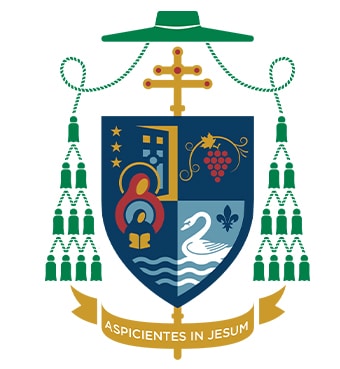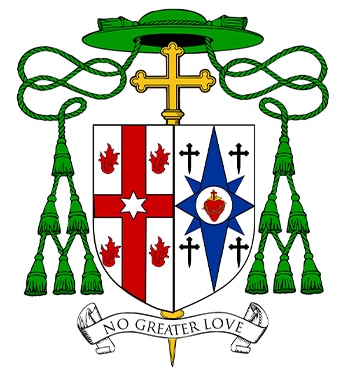Sour Milk (Part 1 of 2)
Kresta Commentary
March 4, 2009
By Al Kresta
“How for so many years did Sean Penn get all those straight roles?” joked Robert de Niro as knowing delight ripples through the Members of the Academy gathered for the 81st Oscar ceremonies. Penn, then jauntily stepped to the podium and received his Best Actor Oscar for bringing murdered gay San Francisco Board of Supervisor Harvey Milk to life on the big screen in the movie, MILK. He hails his audience: “You commie, homo-loving, sons of guns…” Laughter and love all around.
But Penn can’t resist exploiting the moment for political gain. Though his warped political instincts have led him to become an apologist for brutal dictators Hugo Chavez and Fidel Castro, he decides to sit in moral judgment of his fellow Californians. Penn, of course, fancies himself a good person so now, driven by his self-anointing, he wags his finger at those who voted against homosexual “so-called” marriage: they are not good people like him. They are alien, they are other, they are really very, very, bad people. “I think it is a good time for those who voted for the ban against gay marriage to sit and reflect and anticipate their great shame and the shame in their grandchildren’s eyes if they continue that way. We’ve got to have equal rights for everyone.” Lots of cheers from the beautiful people assembled to honor themselves. For such creative people, their political opinions are surprisingly homogeneous.
But Penn smolders in self-righteous accusation. He looks odd – like Paris Hilton at prayer, or “The Dude” Lebowski at chess. He is a post-modern man who rejects the moral law and thus wears moral indignation as a badly tailored costume.
But this is only the most obvious of the dark ironies behind Sean Penn’s Harvey Milk.
The same week that MILK premiered, Penn’s travelogue of Venezuela and Cuba, “Conversations with Chavez and Castro”, appeared as the cover story of The Nation. Nowhere in his reportage do we learn that his admired Raul Castro was notorious for executing homosexuals. Fidel’s has made progress over the last generation. Now Cuba only bans rather than bombs gay organizations.
As James Kirchak documents at TheAdvocate.com: “There isn’t a single individual that is taken seriously in the human rights community — whether you’re talking about Amnesty International, Human Rights Watch, or Freedom House — that would describe the Castro brothers and their regime as anything other than a police state run by thugs and murderers.” Says Thor Halvorssen, president of the Human Rights Foundation, which focuses on Latin America: “That Sean Penn would be honored by anyone, let alone the gay community, for having stood by a dictator that put gays into concentration camps is mind-boggling.”
Another irony surrounds the film’s less than frank portrayal of Milk’s sexual history. With the release of MILK, San Francisco’s GLBT Historical Society opened “Saint Harvey” a temporary exhibit that transformed the gutsy politician into an icon of queer martyrdom. The image obscures the reality as badly as the film. For a movie about a gay activist, it is strangely reticent about sex. In fact, we know that Harvey Milk was promiscuous. He had many “serious” relationships and a taste for teenage boys to boot. His first biographer the late Randy Shilts is more forthcoming than the movie: “Promiscuity was practically an article of faith among the new gays of Castro Street…This proved particularly fortuitous for Harvey, whose sexual appetite never waned.”
It’s even questionable whether Harvey Milk would have been an advocate for same-sex marriage. He held the radical conviction that gay and lesbian sexualities were different from heterosexual and they needed to invent their own codes of behavior. This was a major intellectual debate among gay activists in the seventies. Hear the real not the cinematic Milk: “As homosexuals, we can’t depend on the heterosexual model. We grew up with the heterosexual model, but we don’t have to follow it. We should be developing our own life-style.” Would Harvey Milk have supported gay marriage or counted it a betrayal of his gay libertinism?
There is a further irony to be observed in the public grooming of Harvey Milk. Though loved for his empathy, he was a bad judge of people’s character. Thirty years after the murder of Harvey Milk, San Francisco has named a plaza, a railway station and a local elementary school after the former member of the Board of Supervisors. But one will look in vain for any reference to Milk’s strong support for the tragic Jim Jones’ People’s Temple. Months after an influential New West magazine expose in 1977, Milk trashed former members of the Temple who were trying to gain custody of their son in Jones’ possession. Milk writes to President Carter urging him to ignore other San Francisco area officials who were investigating Jones and lobbying on behalf of former members.
Long after Jones’ other political allies had broken off relations with the Temple, Milk gives the President personal reassurances as to Jones’ character. This is only six months before the massacre and after large numbers of People’s Temple members had already been relocated to the jungles of Guyana. In November of 1978, Congressman Leo Ryan would be among those murdered by Jones’ henchmen during his investigation of the Jonestown compound. As news of the massacre of the 910 dead dribbled in during the week before Milk’s assassination, Milk’s supporters did all they could to obscure his use of Temple members as volunteers and votes.
Truly, Jones’ had deceived many people but Milk had continued his support for Jones long after many of his colleagues knew of Jones’ perversities. The late ACTUP/SF activist and author of A Lavender Look at the People’s Temple Michael Bellefountaine admits: “Ann Kronenberg, Milk’s hand picked successor, told Milk biographer Randy Shilts, that when she first heard Milk was murdered, she thought Jim Jones was responsible.” When Milk’s lover killed himself two months earlier in September 1978, Milk received over fifty letters of sympathy from the residents of Jonestown. Will we ever know the exact nature of Milk’s relationship to the People’s Temple and Jim Jones?
But the greatest irony lying behind MILK is that Harvey Milk was not killed because he was gay. His assassin, Dan White, also shot and killed San Francisco mayor George Moscone the same day. He later admitted to having targeted two others. Of the four, only Milk was gay.
What did the four have in common? Under pressure White had resigned from the Board of Supervisors. At the urging of his constituency he appealed to Mayor Moscone for reappointment. White’s reentry would have upset the political balance of the board which had become decidedly more “progressive.” White jeopardized the progressives’ agenda. They, especially Milk, urged Moscone to deny White’s request. White simply choose a criminal way to get even with his political opponents.
As it turns out, the icon of gay martyrdom was killed in an act of political revenge not homophobic rage. But is it any stranger than the fact that the most prominent champion of homosexual “so-called” marriage (and I use this string of words out of respect for Sean Penn’s own style) is a twice-divorced, commie-loving, heterosexual arrested for felony domestic assault?
Al Kresta is President and CEO of Ave Maria Communications.
His afternoon radio program is heard on over 200 stations as well as Sirius satellite radio.








